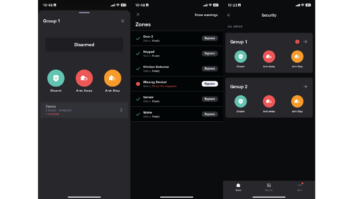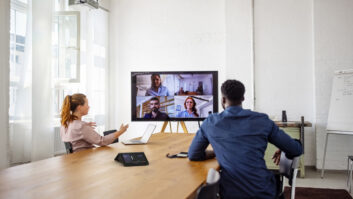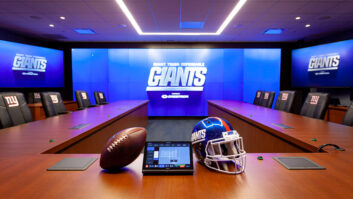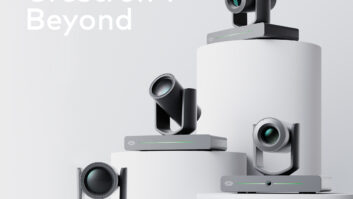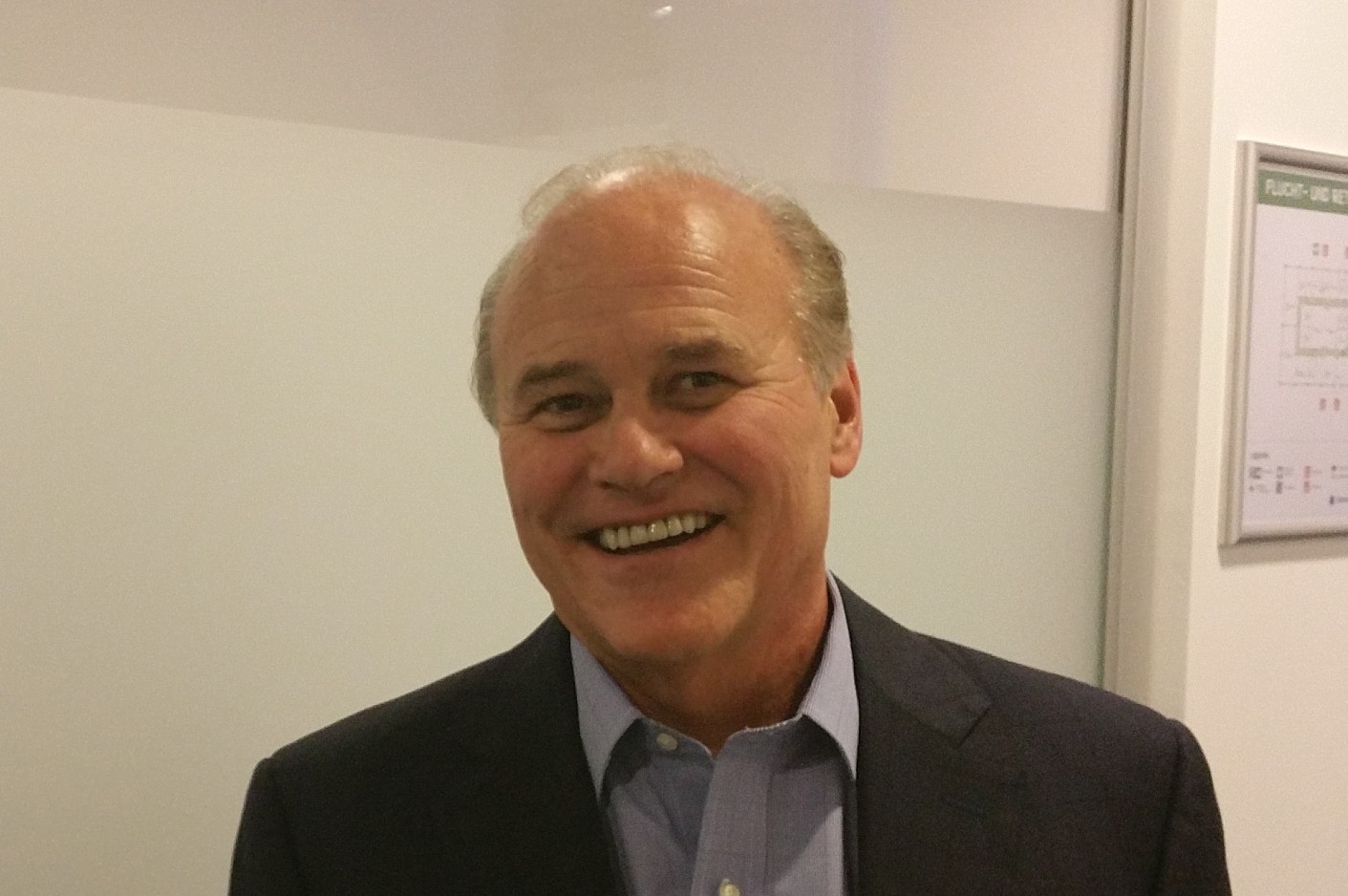
Paddy Baker talks to the president and CEO of Crestron Electronics, and finds a technology evangelist with a belief in hard work and leading by example.
The first of October saw the official opening of a new Crestron customer experience centre in Germany. Ulm, which lies between Stuttgart and Munich in the south of Germany, is the location of the first of five Crestron office locations to open in the country – the others are in Hamburg, Frankfurt, Duisburg and Berlin. The Ulm facility has relocated, enabling Crestron to design and install its own infrastructure there from scratch. Crestron Electronics president and CEO Randy Klein flew in for the event, and I sat down with him and Crestron International CEO Robin van Meeuwen.
You mentioned [at the opening ceremony just now] that Germany will be the engine of growth for Crestron in Europe. What do you see driving that growth, and what will you be doing to achieve it that you’re not doing currently?
Randy Klein: We won’t be doing anything that we’re not doing currently… We have grown and increased each of the 25 years I’ve been here – except for 2008, with the world economic problems, when we declined 7-8%, and we more than made that up the following year.
Our growth has been fuelled primarily through innovation – and I don’t mean just by products but by innovating the company, innovating the processes behind the company, and of course the technology.
We’ve always stepped out there – “gone where no one has gone before” – and created useful and purposeful technology solutions. We used to be a control system and touchpanel manufacturer – today, those account for only 10% of our total business. What that statement really means is today we’re in the technology business, not the AV or control system business. Our business is supplying technology to the enterprise, which means not just a building, but to buildings and campuses.
Germany, besides being a huge population, has always been a great market for us – look around here, look at the innovation, look at the confidence – and we don’t consider it will be different as we apply and develop our current strategies.
Robin van Meeuwen: The business is equally spread out across the whole of Germany. As well as this head office, we have four other offices with their own training and demonstration facilities.
We’ve refocused our sales teams. In the past in the sales team, everyone was doing a bit of everything. Now we’ve got people who are dedicated on the channel and on end-user development. That focus will help us grow our business in Germany. And we’re doing that everywhere across the world – we’re generating the business for the channel.
Randy, you said that growth comes from innovation. Does it get easier or harder to innovate as time goes on?
RK: Again, innovation applies to every aspect of your business. It’s not just a product – we have to innovate the processes and the systems and the methodologies that we apply to every part of our business. Our HR department has to be innovative to attract new people. Our facilities department has to be innovative – looking at one facility versus another.
To answer your question, the bottom line is – nothing gets easier. If it’s easier, you’re probably not doing it right. It is harder, but it’s always accomplishable. It’s harder because of two factors: number one, we stretch: we stretch more and longer than most or many or all. Number two, the time demands: everything is compressed, it’s faster, quicker – the time to market, the time to satisfaction – everything is quicker.
What are the main market drivers – the external factors, that you’re looking to address in the commercial market?
When I started out it in this business some 35 years ago, it was simple AV, and AV was an unknown, it went to luxury, it went to something that was needed – and today it’s a commonplace item in everyday lives. The technology that we create today is not only commonplace in today’s buildings and enterprises, it’s required.
You can’t have a meeting without technology as you’d be having a meeting in a vacuum – you wouldn’t be able to collaborate, you wouldn’t be able to distribute, you wouldn’t be able to bring in other people or other media, you wouldn’t be able to run the environment of the building and be responsible for all aspects of the building – not just AV but energy, security, and everything it takes to run, manage and monitor not just the building, but the enterprise. The driving factor is that requirement and the ability to serve it, and serve it quickly.
And on the residential side?
The residential side is a different animal. There are a lot of big companies – telephone companies, big security companies. We’re not those companies; we’re not racing to the bottom. We’re a high-end luxury brand, and those customers will always look to a company that can provide solutions that are reliable, dependable and provide value at the same time – just because it’s high-end, it doesn’t mean it costs a lot of money and does nothing – and they’ll look for somebody they can depend on. That will continue to drive the residential business today.
Can you characterise different regional markets? Are there differences in what the customers are looking for?
RvM: In some countries we have a very big public sector, in others our biggest market is financial, in others it’s residential. In the Middle East a big chunk of our turnover is in education, and in France it’s mostly private sector, not much residential; in the UK we have a lot of residential, a lot of financial sector. So it just depends, market to market.
That’s the verticals. But the customer expectations – the demands for the technology to do certain things are almost identical everywhere.
Is there a sense of ‘this technology is big in America now, so it will be big in Europe soon’?
RvM: Yes – it’s quicker now. Whatever’s hot in America – it used to take six months, sometimes two years [to take off in Europe], now it’s almost instantaneous. There’s very little delay between what gains traction in America and what gains traction in Europe.
RK: The world is a big place. Europe is different than the US, the Middle East is different than Asia, there will always be cultural divides and political differences. The one bridge that seems common across the world is technology. It’s the one thing that universally people can agree on. You can’t find any culture, any society that says ‘I don’t want a cellphone’. Then there’s that wonderful thing called the internet – there are no boundaries. We happen to be in a very fortunate position to be in the technology sector.
Do you have any key principles that have guided you through your career – either in terms of your own career progression or managing others?
There’s a few of them. There’s not one that’s number one, except for the number one – and that’s hard work. If you work hard then you set a good example and others work hard. Nothing replaces hard work. There’s not one person or company that has had long-term, sustained success that wasn’t through hard work.
As an individual, I try to lead by a few guiding principles. One is to lead by example – now everybody says that, but saying it and doing it are really two different things. I have never asked anyone to do anything that I haven’t or wouldn’t do myself – and if I haven’t done it myself I challenge myself to do it.
I liken the company to a bus. It pulls up to the kerb every day – the employees get on it, they know who the driver is, they know where they’re going because I tell them all the time, I’ve been here for 25 years and I’ll be here for a lot longer – so they know it’s a safe ride, they know where they’re going and we know they’re going to come back every day.
Finally, there’s the one that I call balance. You have to have the courage, and the resources and the will to always try new things –but it’s very easy to try too much. You should never try something at the expense of everything, You should always keep one foot in the future, one in the current – as you move forward you’ll leave a little of the current behind, but just a little. But the keyword is the right amount – not too much, not too little.
As the leader of the company that’s really what my primary responsibility is – to determine the priorities, determine the measurements of the amounts of the things we should do – don’t do too much of this and too little of that, and let’s do this first, second and third.
That must be a judgement call to a great extent…
It is, but I’m very lucky: I have a lot of experience, I work very hard and I have a lot of good people around me that either validate or help change the decisions I make.
What’s on the horizon for Crestron?
We’re in a fantastic industry and a fantastic age of nothing but opportunity. There isn’t one industry or one period of time when you could stand up and say that the opportunities are so limitless compared to how they’ve been over recent years. This is a great time and a great industry to be in.
As a company, we are very strong, and positioned very well. The structure of our company, the way our organisation is, our executive management team and all the other teams – I couldn’t be more happy about how we’re structured and positioned. From a financial standpoint we’re very happy, and from an overall roadmap provision standpoint where we’re going to go over the coming years.
I won’t give you my exact plans, as I assume my competitors are reading your magazine too. But when people ask me ‘where is Crestron five years from today?”… People try to say, ‘We’re going to be doing this’ – I find it difficult to make those kinds of statements. In a high-technology field, things change quickly – one would never have thought five years ago that the phone would be what it is today, right? So whatever we say we have to be able to adapt, and be dynamic, and agile and flexible – and we are.
So if I could say that without hesitation and be categorically right, I would have a crystal ball and I probably wouldn’t be here talking to you, I’d be somewhere else and I’d be really rich.
The bottom line is, it’s a simple answer. My only direction and drive and wish for the company is to be a bigger and better company. And we will be – we have been every year. And we have to have both of those accomplishments: we can’t be bigger without being better, we can’t be better without being bigger.
When we achieve our objectives every year I’m always criticised for not being as happy as I should be. “Aren’t you happy?” Yes, I’m happy. “Aren’t you satisfied?” No, I’m never satisfied – I always know there’s more, that’s just a deep down belief I’ve always had. So what’s next for Crestron? Bigger and better.
And I can say unequivocally I’ll have the same group of people – like my associate there – around me for many years to come.
